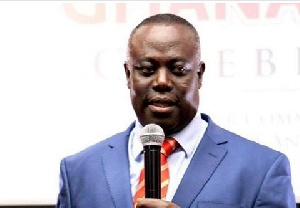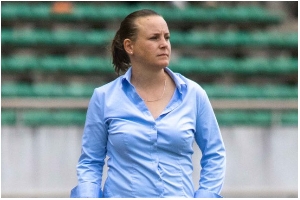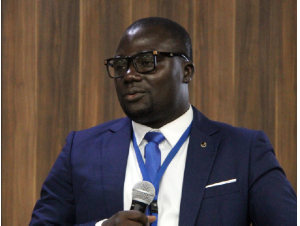General Superintendent, Assemblies of God, Rev. Prof. Paul Frimpong-Manso has called on various stakeholders to increase the representation of Women and persons living with disabilities in the local level.
This, according to him, will strengthen the decentralisation process and also promote gender and disability balance in the country.
In a press statement he added that women and persons with disability are the guardians of peace and development, and we need to support, encourage and campaign for them to contest and win in the December 2019 district level elections.
PRESS STATEMENT
ON CAMPAIGN TO VOTE FOR WOMEN & PERSONS WITH DISABILITY AT THE 2019 DISTRICT ASSEMBLY ELECTION
On behalf of the Assemblies of God, Ghana, I wish to add my voice to the laudable initiative of the Henry Djaba Memorial Foundation (HDMF) to urge for collective action NOW to galvanise and increase the voices, involvement, and votes for women and persons with disability in the December 2019 District Assembly Election. We are making this clarion call to all stakeholders and voters to increase the representation of Women and Persons with Disabilities at the local governance level.
The specific objectives are:
1. To raise awareness for the electorate to vote for more women and persons with disability towards achieving the goal of increasing their representation and participation in local governance structures in order to strengthen the decentralization process in Ghana
2. To galvanise the electorate to vote to promote gender and disability balance in compliance with the Sustainable Development Goal 5.
3. To promote equity, inclusion and participation of Women and Persons with Disabilities in local government in order not to leave out or leave behind the majority of our society (The 2010 HPC states 51% for women and 3% for persons with disabilities) from decision making at the district level of governance.
4. To fulfil the constitutional rights as per Article 240 (2) (e) of the 1992 Constitution of Ghana which states that: ‘ to ensure the accountability of local government authorities, people in particular local government areas shall, as far as practicable, be afforded the opportunity to participate effectively in their governance’.
How can we accelerate the pace of development in our communities when we leave out the majority who are women (51.2%) and persons with disability (3%) in key decision-making roles like the district assembly members? The data over the years on the representation of women and persons with disability in Ghana at the district level is very abysmal as per the table below:
Year Number of Women who contested Number of Women who won Percentage
1998 547 196 35%
2002 965 341 35.3%
2006 1,753 478 27.3%
2010 1,376 412 29.9%
2015 1,102 280 25.4%
In 2019, out of the 18,510 nominations received by the Electoral Commission, male nominations received were 17,601 whereas females were only 909. For the Unit Committee out of a total of 38,520, the male nominations received were 34,769 but the females were only 3751. The data for persons with disability although not available are even worse than the females. Reports from the Ghana Federation of Disability Organizations (GFD) indicate that only 2 persons with disabilities are Assembly members in the Eastern Region. Data for the other regions is not yet compiled. Currently, there is no person with disability in the Parliament of Ghana and yet, Persons with Disabilities have shown that when given the opportunity they can serve with distinction. A case in point is the former Minister of Chieftaincy and Culture who was visually impaired – Dr. Seidu Danaah. He contributed immensely to the Ministry during his tenure of office.
In Parliament, only 38 of the 275 parliamentarians are women and at the Assembly level the women are only 7.6% out of a total of 9,423 members. The situation of representation of persons with disability is even worse. The low participation of persons with disability and women translates to their under representation at various levels of governance and leadership positions.
The democratic credentials of Ghana are very high, however the representation of women and persons with disability is very low. Female representation in Parliament is 13.8%. We must thus walk the talk for fairness, equality and the fulfilment of the rights of all citizens. Women and persons with disability are human beings and have rights that must not be denied. It is important that we encourage them to believe that they are not less human nor second class citizens. Rwanda has an outstanding record of 64% female majority in Parliament, South Africa has 42%, Uganda has 34% and Sweden 46%. It is critical that as a nation with a female population of 51.2% and 3% of persons with disability, we take specific pragmatic steps to re-enforce the need for our communities in Ghana to demonstrate and promote good and inclusive governance as enshrined in our constitution so that we leave nobody out or behind in our collective efforts to achieve the SDGs. Women and persons with disability need access in local governance to enable their voices to be heard in decision-making roles at the district level. Thus we need to give them our unalloyed support to push them to win in 2019 District Assembly Election. Women and persons with disability have been subjects of injustice and unspeakable abuses that have affected their dignity, confidence and representation in leadership positions. In spite of the various challenges faced by these two targeted groups, whenever given the opportunity, they have demonstrated their ability to excel. It is critical that we use this December 2019 District Assembly elections to increase their numbers to enable them change the negative perceptions and attitudes that people have about them, as well as provide them with additional opportunities to demonstrate that being female or disabled does not mean inability. These two categories of citizens deserve to have the space to fulfil their full potentials in contributing to the development of their communities, just like anybody else.
A research conducted by FORBES magazine showed that firms with more women on their Boards outperform their rivals with a 42% higher return on sales, 66% higher return on invested capital and 53% higher return on equity. The Harvard Business Review in 2011 also stated that teams that involve women are more intelligent than teams made up of only men. Again, a research conducted by Professors Anita Woolley and Thomas W. Malone of Harvard University revealed that: Women tend to score higher on tests of social sensitivity than men do, implying that good governance needs people who are high in social sensitivity – whether they are women or men. The research went further to show that: Women listen more, have more open minds, are not autocratic, and also that women share criticisms more constructively. Other qualities that make women and persons with disability more suited as good leaders include but not limited to: good communication skills, ability to understand what others are feeling (empathy), seeing ahead or being visionary, looking at problems differently from others (perspective), and last but not the least, risk awareness and caution (maturity).
The December 2019 District Assembly Election is an opportune time to bridge the gap. It is important to note that the low numbers of these two target groups in our leadership and governance processes are due to the erroneous perceptions of our people that they are not capable, as well as traditional misconceptions and beliefs that make it a taboo, and hence culturally unacceptable for persons with disability to be leaders. Other misconceptions are that: Women lack self-esteem and adequate resources, and hence they are only fit for the kitchen and the home.
It is against this background, that I declare my support to the Henry Djaba Memorial Foundation and the IMCC in advocating and raising awareness and support for the creation of an enabling environment in our communities for increased votes for persons with disability and women in the 2019 district assembly elections in December.
Your intervention as a champion, ambassador, activist, supporter and/or voter would galvanise the needed support for these marginalized groups to perform better in the district level elections scheduled for 17th December 2019. Women and persons with disability are the guardians of peace and development, and we need to support, encourage and campaign for them to contest and win in the December 2019 district level elections.
The time is now to Vote for Women and Vote for Persons with Disability to increase their representation at the local governance level.
I REV. PROF. PAUL FRIMPONG-MANSO, HAVE PLEDGED TO VOTE ON 17TH DECEMBER 2019 FOR A MORE INCLUSIVE SOCIETY WHERE WOMEN AND PERSONS WITH DISABILITIES PARTICIPATE EFFECTIVELY. Please join the campaign to vote for women and persons with disability to accelerate the pace of development in our communities.
Signed
REV. PROF. PAUL FRIMPONG-MANSO
(GENERAL SUPERINTENDENT – ASSEMBLIES OF GOD, GHANA)
Dated: 28th November 2019
#Vote4WomenToWin
#Vote4PersonsWithDisability2Win2019DistrictAssemblyElection
General News of Friday, 29 November 2019
Source: www.ghanaweb.com

















